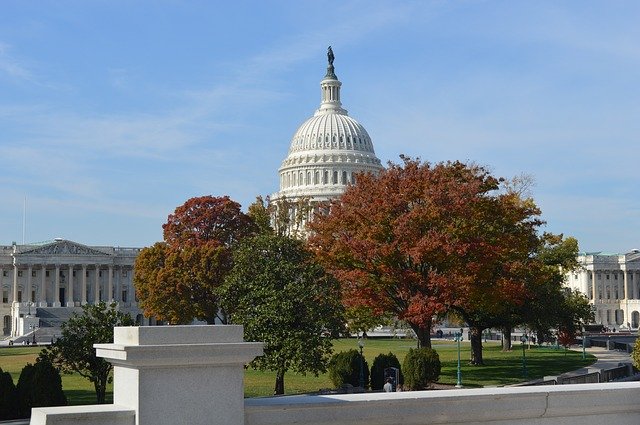Employers are dealing with the legal status of marijuana as an evolving and relatively new area of law. Despite its federal illegality, marijuana is legal for medical and recreational use in 31 states. As a result, employers face complex issues related to drug testing and the use of marijuana for medicinal purposes. Employers must understand the current landscape of marijuana-related laws and regulations to effectively navigate this complicated area of law and minimize potential liability.

Legal Status of Marijuana Drug Screening
The Drug-Free Workplace Act of 1988 (“DFWA”) generally requires most federal contractors and all federal agencies to agree that they will provide drug-free workplaces to receive a contract or grant over $2,000. On February 15, 2018, the U.S. Food and Drug Administration approved Epidiolex, the first prescription drug derived from marijuana. This approval has significant legal implications for employers, health insurance providers, and other entities subject to the Controlled Substances Act (“CSA”). The legalization of marijuana presents several challenges for employers. First, even though marijuana has been legalized in many states, it remains prohibited federally and is categorized as a Schedule I controlled substance. In addition, the Trump administration has signaled a potential crackdown on the recreational use of marijuana.

Because marijuana remains illegal on a federal level, employers may consider it on par with other illicit substances. Legal framework for marijuana testing in the workplace The federal government continues to ban the use of marijuana. The Drug-Free Workplace Act, 42 U.S. Code § 701 et seq., provides that federal contractors and grantees may not use illegal drugs, including marijuana, on the job or duty. Marijuana is illegal under federal law and is listed as a Schedule I drug under the Controlled Substances Act, 21 U.S.
While determined based on the specific facts of each case, courts have held that employers may not require pre-offer drug testing of employees seeking positions at companies that manufacture or sell marijuana. Such testing would violate federal law, as marijuana is illegal at the national level. Similarly, employers may not deny employment to an applicant based on their positive drug test for marijuana.
Under federal law, it’s still considered an illegal controlled substance, which means that employers don’t need to accommodate the medical use under the Americans with Disabilities Act. However, CBD oil — which comes from the hemp plant — contains low levels of THC and is legal.
Related reading: 8 Ways Hemp Seeds Beat Peanut Butter On Pancakes
Marijuana has always been a controversial issue. The Controlled Substances Act puts marijuana in with heroin and other drugs that are considered to have high abuse potential and have no accepted medical uses. There has always been a disconnect between the federal view of marijuana, which states that it is an illegal drug, and state views on its use for medical purposes (California and Washington passed ballot initiatives in 1996 legalizing medical marijuana).
This disconnect between state and federal laws makes things complex when discussing employment law. Many states have decriminalized or legalized cannabis, but there are still limits if you work for a federally regulated business or government agency like the military or the Department of Transportation.
Legal Status of Medical Marijuana
Medical cannabis has also become a big part of conversations around health care on Capitol Hill. Some people believe that using it medically should fall under Americans’ healthcare insurance benefits. Who participates in job-based health plans rather than being excluded just because marijuana is illegal at the federal level. Still, Congress hasn’t passed anything yet related to this topic.
Under the Americans with Disabilities Act, what happens when an employee with a disability is fired for a positive drug test for marijuana but argues that it’s a false positive for legally advised CBD oil?
In Huber v. Blue Cross & Blue Shield of Florida, Inc., the employee was a migraine sufferer who took CBD oil for years at the advice of her doctors. She was requested to take a drug test associated with her work on a federal contract, and we’re concerned that she might have tested positive for THC, which would have violated our cannabis policy.
The court concluded that because Huber wasn’t using prescribed CBD oil, it didn’t qualify as a substance use disorder covered under the ADA. Therefore, the company couldn’t ask Huber to take its drug test before hiring her or give her an ultimatum: Take the test or lose your job. Instead, they just terminated her employment contract and never even allowed her to retake their drug test.
In its opinion denying dismissal of the suit, the court:
- Determined that it was undisputed that the employee’s migraines qualified as a disability
- Found issues of fact whether a negative drug test was needed for the employee’s job, where she did not directly work under a federal contract
- Rejected the opinion of the drug testing consultant, including by taking judicial notice of a state law statute that provided a higher threshold for an excusable range
- Held that the employer did not offer reasonable accommodation for the employee for her disability and CBD oil use under the ADA by failing to account for the false positive
This case highlights the following takeaways as employers navigate the ever-evolving law on medical marijuana:
- Think twice before taking adverse action on a positive drug test for marijuana under a drug-free policy.
- Offer an employee the chance to explain a positive drug test.
- Make sure to account for false positives when testing for marijuana.
- Assess whether to update drug testing policies addressing marijuana, including at the pre-employment stage.
- Consider whether or not to include drug testing for marijuana for non-safety sensitive positions and positions not governed by federal contracts.
FDA Admits Agency Slow On Legal Status of CBD
Marijuana is a bit complicated. Under federal law, it’s still considered an illegal controlled substance, which means that employers don’t need to accommodate the medical use under the Americans with Disabilities Act.
However, CBD oil — which comes from the hemp plant — contains low levels of THC and is legal. The legal status of marijuana has always been a controversial issue. The Controlled Substances Act puts marijuana in with heroin and other drugs that are considered to have high abuse potential and have no accepted medical uses.
The Disconnect Between Feds and States on Marijuana
There has always been a disconnect between the federal view of marijuana, which states that it is an illegal drug, and state views on its use for medical purposes (California and Washington passed ballot initiatives in 1996 legalizing medical marijuana).
This disconnect between state and federal laws makes things complex when discussing employment law. Many states have decriminalized or legalized cannabis, but there are still limits if you work for a federally regulated business or government agency like the military or the Department of Transportation.
Medical cannabis has also become a big part of conversations around health care on Capitol Hill. Some people believe that using it medically should fall under the umbrella of health care insurance benefits for Americans who participate in job-based health plans, rather than being excluded just because marijuana is illegal at the federal level. Still, Congress hasn’t passed anything yet related to this topic.
The Food and Drug Administration Administrator acknowledged that his agency had taken little regulatory action on CBD products despite the federal legalization of hemp. The FDA is notoriously slow to regulate CBD, but it is only now that an official has publicly admitted it.
Speaking before a congressional panel on Thursday, Scott Gottlieb, who became FDA commissioner in 2017, said: “I think we are being needlessly cautious, and I think that can change. We need to be as rational about this as anything else.” He added: “We could get more involved concerning protecting consumers from inappropriate claims made by some manufacturers out there.”
He specifically mentioned several companies making false health claims about CBD-containing products. It is illegal under federal law (the Dietary Health and Education Act of 1992). “I think there will be occasions when we publicly say you cannot make these types of claims because they are not permitted by regulation or don’t meet our standards,” he stated.

Gottlieb supported restricting marketing claims but did not commit to specific regulatory changes or deadlines. Presumably, if any change happens — a big “if” given the FDA’s famously glacial pace. — it won’t happen until after the 2020 election, following which new appointees may take over leadership positions in other agencies besides the FDA, including the Department of Justice. Which had previously filed suit against companies peddling CBD supplements containing THC, a cannabinoid found in cannabis plants such as hemp and marijuana.
“It looks pretty much the same in terms of where we are now,” FDA Commissioner Dr. Robert M. Califf stated. “We just know more because we’ve done more research.” The bulk of FDA funds spent on cannabidiol so far “has been spent on research to figure out the risks, if any, of various uses of this material in its different forms .” But while Califf insisted he wants FDA to continue moving forward on rules for CBD products, he conveyed that the agency likely needs broader regulatory powers from Congress to get it done.
Rep. Mark Pocan pushed the FDA commissioner further. “Technically, CBD’s sale, in the eyes of the FDA, is illegal,” he declared. “What is FDA’s plan to explain that CBD could conceivably be controlled as a food or food additive, and is there any timeline?” “The research has shown that there are some dangers with CBD, so we’re going to need a different course than just the standard one,” replied Califf. “You know, when you come six years later to the job you had before and nothing has really changed, that’s telling you that you can’t just keep trying to do the same thing over and over.”
FDA has repeatedly voiced that it is exploring regulatory pathways to allow for CBD commerce, and bipartisan lawmakers have introduced legislation this session to push change. Earlier this month, Rep. James Comer, ranking member of the House Oversight and Reform Committee, called on congressional leadership to hold a standalone hearing to hold FDA accountable for its inaction on CBD and delta-8 THC products.
The purpose of the meeting should be to “examine the failure of [FDA] to develop a regulatory regime that effectively oversees the sale of hemp-derived extracts such as cannabidiol (CBD).”While the FDA has taken steps to issue warnings against select CBD and delta-8 THC companies marketing products with allegedly misleading medical claims, the agency has yet to implement specific marketing regulations for the cannabinoids. Council for Federal Cannabis Regulation urges immediate congressional spending on the FDA and the U.S. Department of Health and Human Services so officials can develop new, faster ways to evaluate compounds in cannabis.
Marijuana Enforcement Will Provoke Disruptions.
Retailers are removing some edible CBD products from shelves as compliance concerns mount following the food regulator’s decision to rein in the industry. Amazon.com stated it’s in the process of removing any products not included in the Food Standards Agency’s approved list of about 3,500 CBD edibles. Other retailers note they are navigating a complicated examination of their inventory against the list published by FSA, which describes only a fraction of CBD products on sale in the country.
Sales of CBD products in the U.K., including food and cosmetics, have skyrocketed into a 500 million-pound ($654 million) industry. Supermarket chain Asda Stores Ltd. publicized that it had been in talks with the food regulator, which permitted it to continue selling all its CBD products pending additional testing. A spokesperson stated in an emailed statement:
“As the testing continues, products may change status, and should any of our currently listed CBD products change the category to be not permitted for sale; we will, of course withdraw them,”
The new enforcement environment will cause short-term disruptions for retailers. However, direct-to-consumer online channels, which represent a significant share of CBD sales, are “much less likely to see enforcement,” according to Charlotte Bowyer, Head of Consulting at Hanway Associates, a cannabis research firm.
“The novel food process is long, technically challenging and expensive for CBD producers,” Bowyer stated. “There are also wider issues with the approval process, such as the need for animal testing.”
We would love to know what you think of your new products. Would you do us a favor and leave a comment if you have a moment? It enables us to improve upon everything we do. Still, it also helps us decide which products to research and promote. We’ve made leaving a comment or question easy! Just go below.
Delta 8 carts, delta 10 edibles, and more, now Buy 1, Get 1 FREE through Memorial Day With Code B1G1!
Some of the links in this article are affiliate links. If you were to buy something after clicking on one of these links, I would get a small commission that might help me get a new printer for the shop!
Thanks for being part of the community!
Kevin
Hello,
As an eCommerce seller, the first physical touchpoint you’ll have with a customer is when your package arrives at their door, an impactful impression is critical.
Fulfillment marketing, a cutting-edge solution crafted by my friends over at The Fulfillment Lab, is designed to make the unboxing experience memorable by bringing marketing and fulfillment together at scale!
With this strategy, you can create a unique order fulfillment experience using data you’re already capturing—without sacrificing speed or scalability. It makes it possible to:
- Build brand recognition. With increasing competition for eCommerce businesses, you need a way to differentiate and build brand recognition. Fulfillment marketing is that solution!
- Tailor the customer experience. Personalize the fulfillment experience to each buyer using marketing data you’re already collecting—delivering a unique customer experience that’ll leave a lasting impression.
- Create brand advocates. Turn one-time buyers into repeat buyers and loyal advocates for your brand. You make it easier to attract new customers driving additional revenue from repeat sales while expanding your new customer base.
I figured this is something you’d like to do in your organization, so I’m connecting you with The Fulfillment Lab! Click this link [HERE] to get started with their fulfillment services today, or reach out to them directly if you have any more questions.
The Fulfillment Lab, 5136 W Clifton St, Tampa, FL 33634, (813) 444-3455